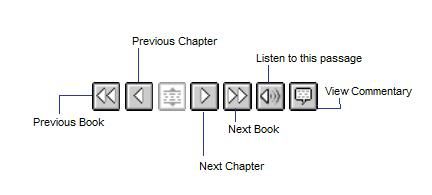New International Version (NIV Bible)
Go to : Bible-Book List

Version Information
The New International Version (NIV) is a completely original translation of the Bible developed by more than one hundred scholars working from the best available Hebrew, Aramaic, and Greek texts.
The initial vision for the project was provided by a single individual – an engineer working with General Electric in Seattle by the name of Howard Long. Long was a lifelong devotee of the King James Version, but when he shared it with his friends he was distressed to find that it just didn’t connect. Long saw the need for a translation that captured the truths he loved in the language that his contemporaries spoke.
For 10 years, Long and a growing group of like-minded supporters drove this idea. The passion of one man became the passion of a church, and ultimately the passion of a whole group of denominations. And finally, in 1965, after several years of preparatory study, a trans-denominational and international group of scholars met in Palos Heights, Illinois, and agreed to begin work on the project – determining to not simply adapt an existing English version of the Bible but to start from scratch with the best available manuscripts in the original languages. Their conclusion was endorsed by a large number of church leaders who met in Chicago in 1966.
A self-governing body of fifteen biblical scholars, the Committee on Bible Translation (CBT) was formed and charged with responsibility for the version, and in 1968 the New York Bible Society (which subsequently became the International Bible Society and then Biblica) generously undertook the financial sponsorship of the project. The translation of each book was assigned to translation teams, each made up of two lead translators, two translation consultants, and a stylistic consultant where necessary. The initial translations produced by these teams were carefully scrutinized and revised by intermediate editorial committees of five biblical scholars to check them against the source texts and assess them for comprehensibility. Each edited text was then submitted to a general committee of eight to twelve members before being distributed to selected outside critics and to all members of the CBT in preparation for a final review. Samples of the translation were tested for clarity and ease of reading with pastors, students, scholars, and lay people across the full breadth of the intended audience. Perhaps no other translation has undergone a more thorough process of review and revision. From the very start, the NIV sought to bring modern Bible readers as close as possible to the experience of the very first Bible readers: providing the best possible blend of transparency to the original documents and comprehension of the original meaning in every verse. With this clarity of focus, however, came the realization that the work of translating the NIV would never be truly complete. As new discoveries were made about the biblical world and its languages, and as the norms of English usage developed and changed over time, the NIV would also need to change to hold true to its original vision.
And so in the original NIV charter, provision was made not just to issue periodic updates to the text but also to create a mechanism for constant monitoring of changes in biblical scholarship and English usage. The CBT was charged to meet every year to review, maintain, and strengthen the NIV’s ability to accurately and faithfully render God’s unchanging Word in modern English.
The 2011 update to the NIV is the latest fruit of this process. By working with input from pastors and Bible scholars, by grappling with the latest discoveries about biblical languages and the biblical world, and by using cutting-edge research on English usage, the Committee on Bible Translation has updated the text to ensure that the New International Version of the Bible remains faithful to Howard Long’s original inspiration.
Copyright Information
The NIV text may be quoted in any form (written, visual, electronic or audio), up to and inclusive of five hundred (500) verses without express written permission of the publisher, providing the verses do not amount to a complete book of the Bible nor do the verses quoted account for twenty-five percent (25%) or more of the total text of the work in which they are quoted.
When the NIV is quoted in works that exercise the above fair use clause, notice of copyright must appear on the title or copyright page or opening screen of the work (whichever is appropriate) as follows:
THE HOLY BIBLE, NEW INTERNATIONAL VERSION®, NIV® Copyright © 1973, 1978, 1984, 2010 by Biblica, Inc.™ Used by permission. All rights reserved worldwide.
These Scriptures are copyrighted by the Biblica, Inc.™ and have been made available on the Internet for your personal use only. Any other use including, but not limited to, copying or reposting on the Internet is prohibited. These Scriptures may not be altered or modified in any form and must remain in their original context. These Scriptures may not be sold or otherwise offered for sale.
These Scriptures are not shareware and may not be duplicated.
When quotations from the NIV text are used in non-salable media such as church bulletins, orders of service, posters, transparencies or similar media, a complete copyright notice is not required, but the initial NIV must appear at the end of each quotation.
Any commentary or other Biblical reference work produced for commercial sale that uses the New International Version must obtain written permission for the use of the NIV text.
Permission requests for commercial use within the U.S. and Canada that exceed the above guidelines must be directed to, and approved in writing by, Zondervan, 5300 Patterson Avenue SE, Grand Rapids, MI 49530.
Permission requests for commercial use within the U.K., EEC, and EFTA countries that exceed the above guidelines must be directed to, and approved in writing by, Hodder & Stoughton Ltd., a member of the Hodder Headline Plc. Group, 338 Euston Road, London NW1 3BH.
"New International Version” and “NIV” are registered trademarks of Biblica, Inc.™.
Used with permission.



 10:02 PM
10:02 PM
 dinhjb
dinhjb

